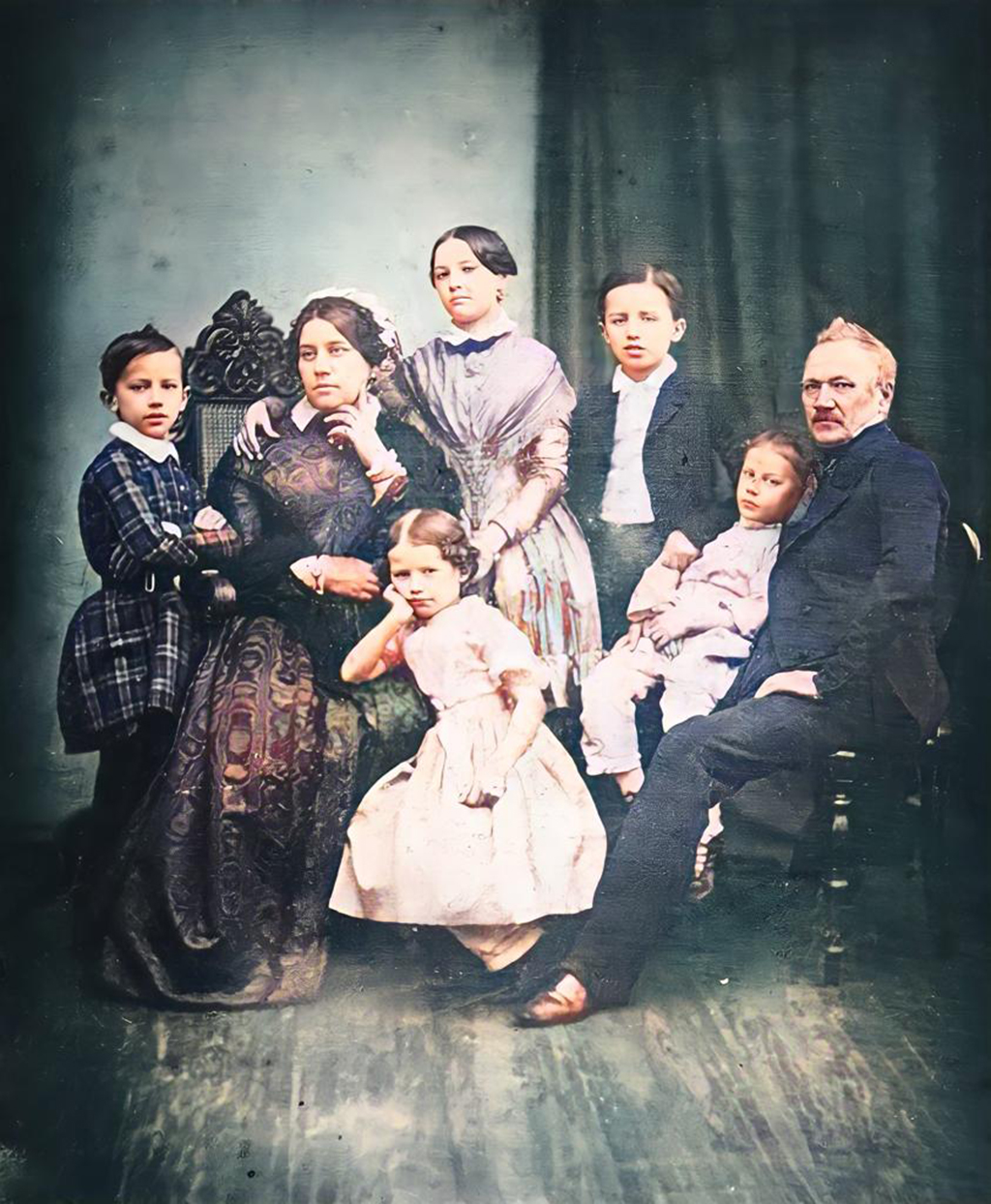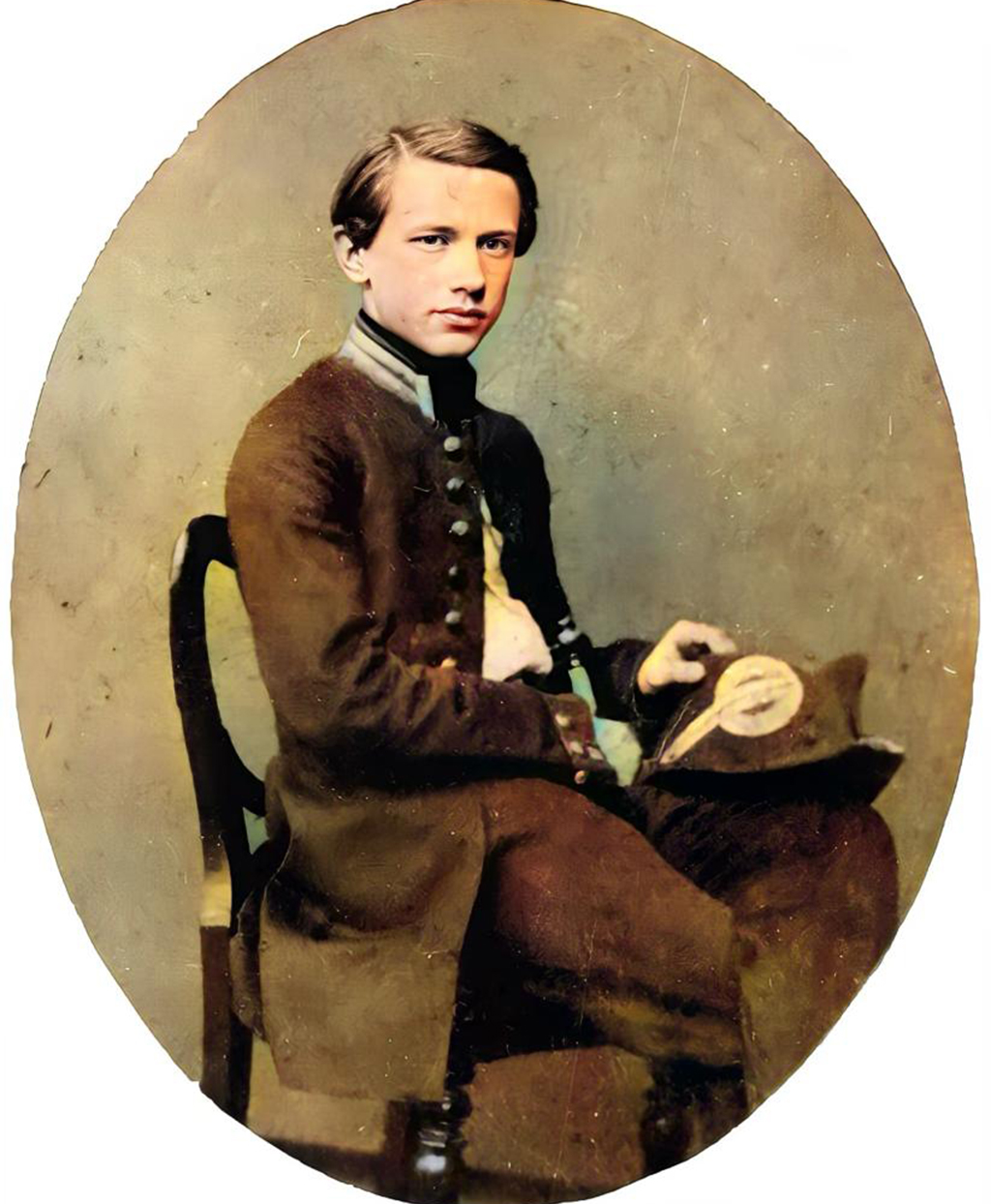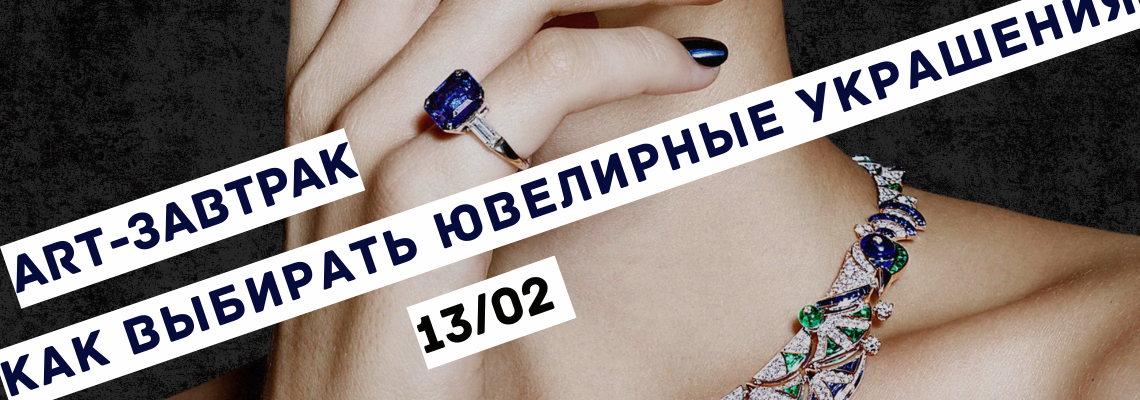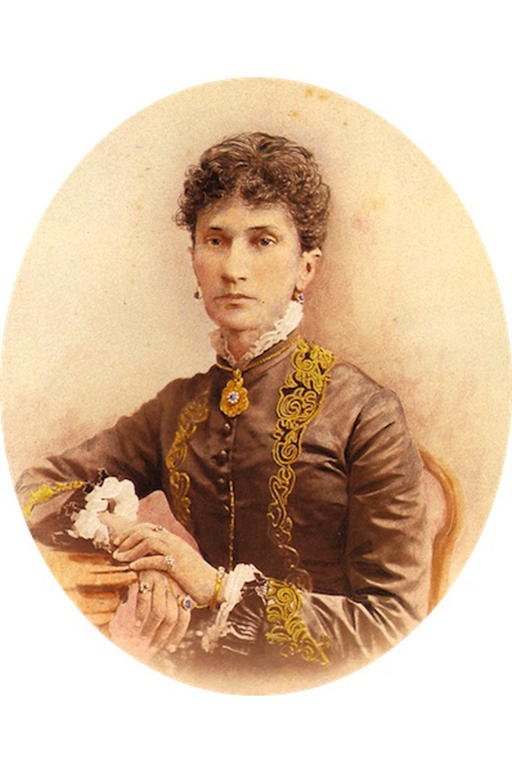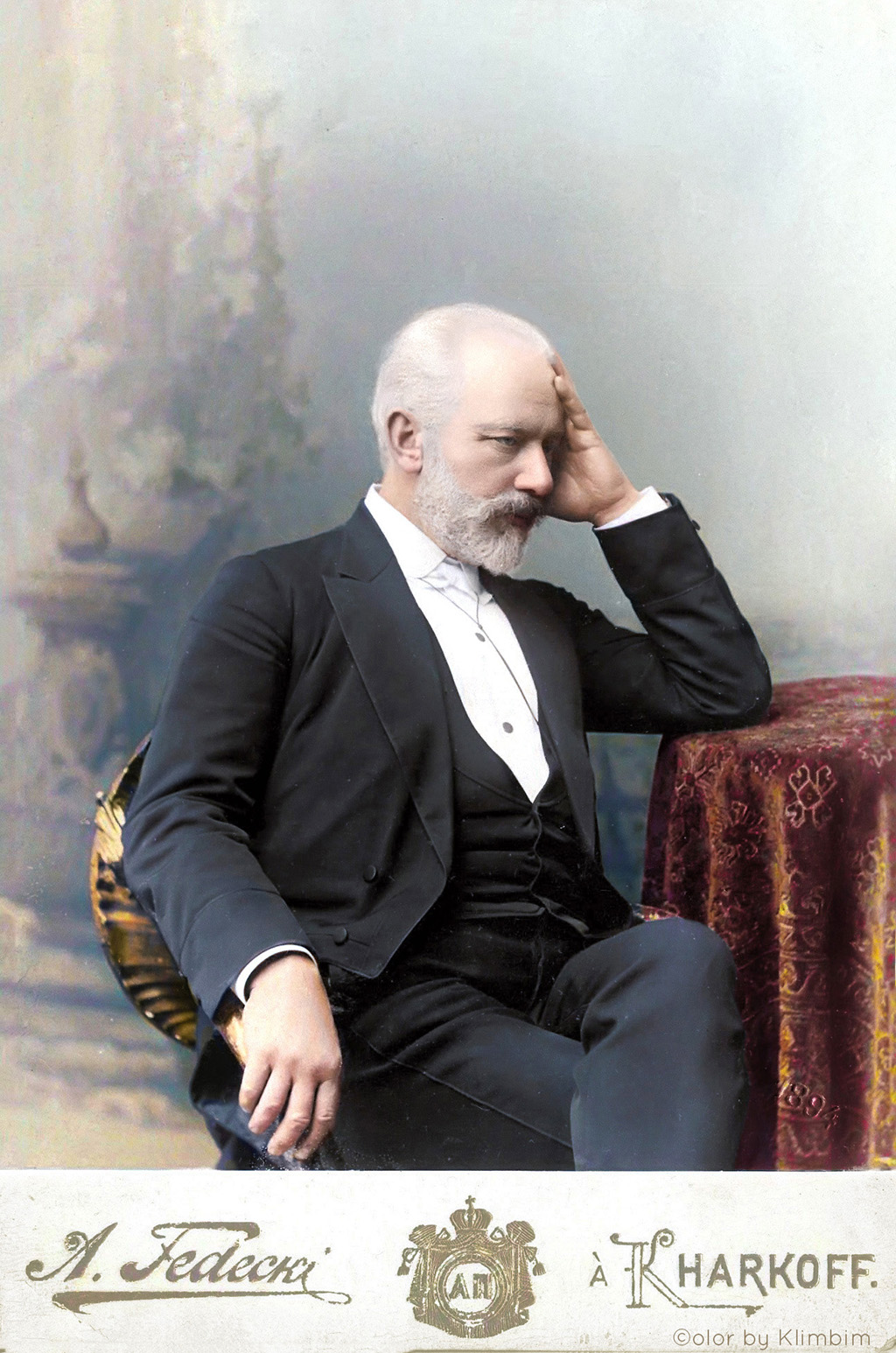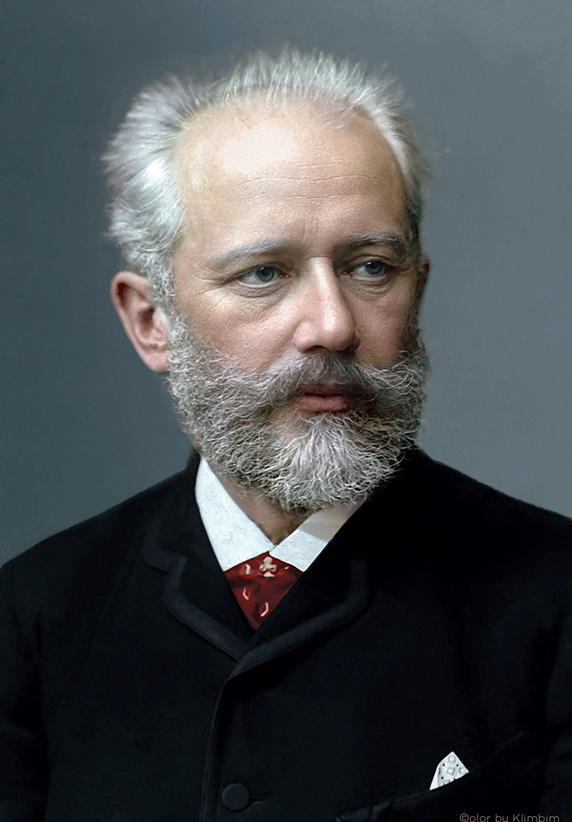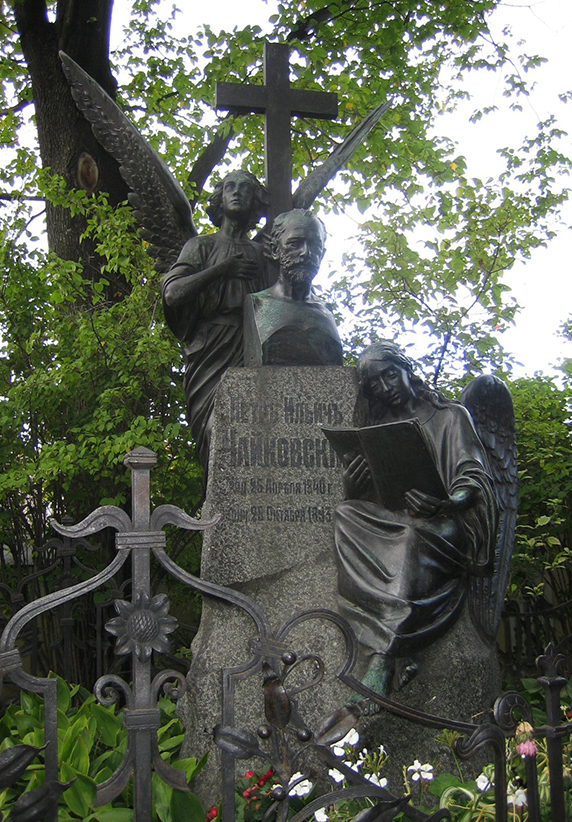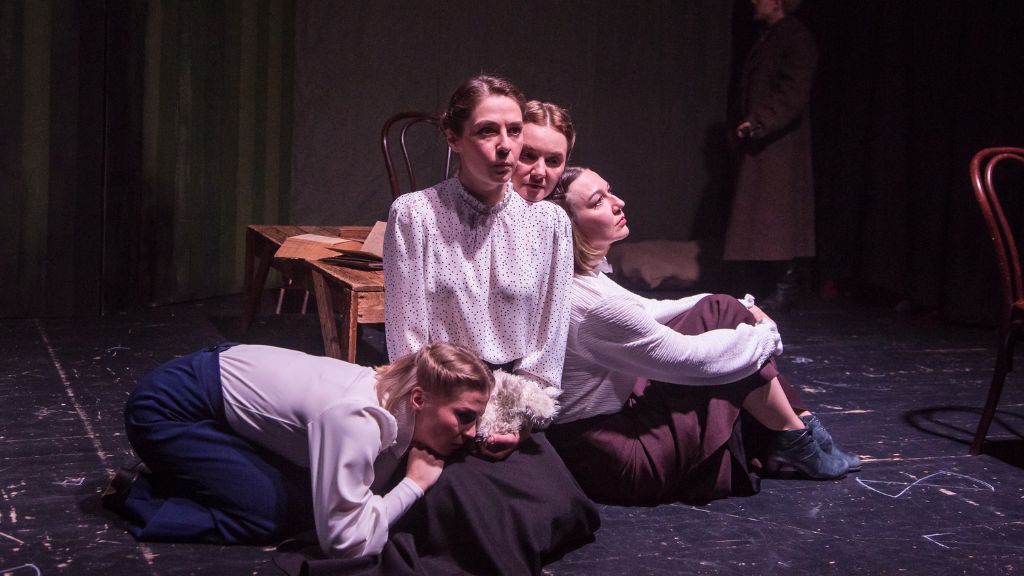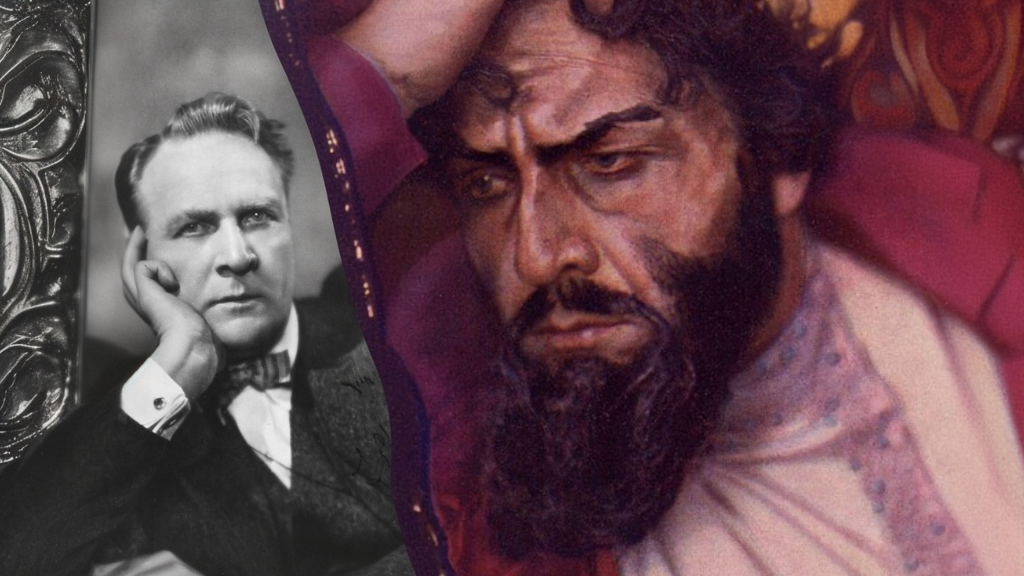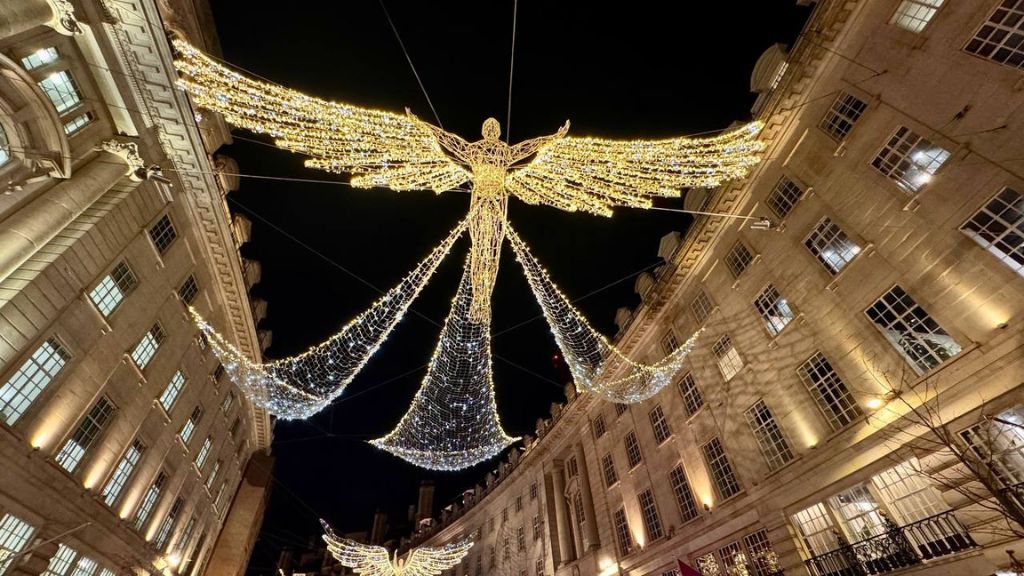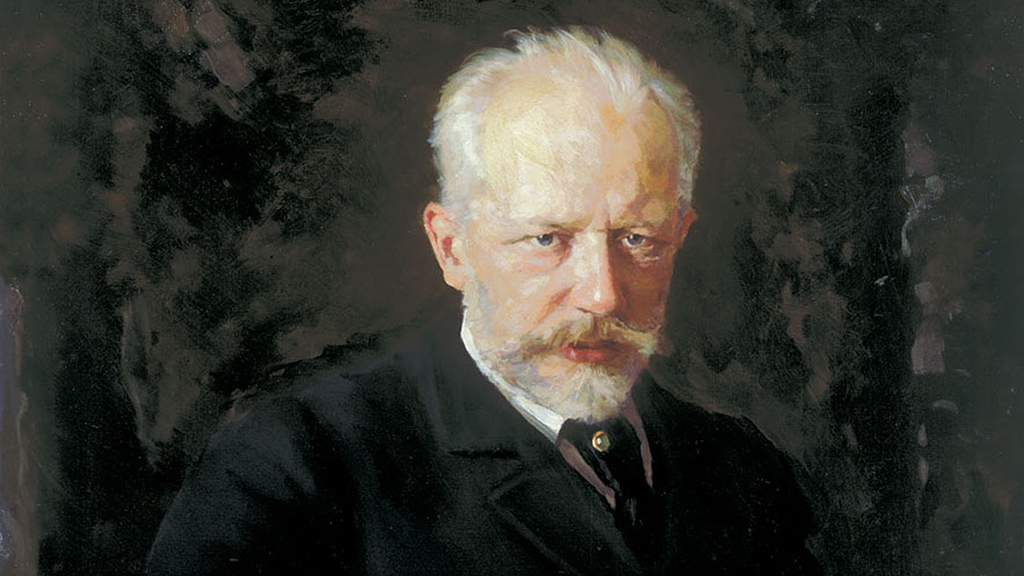
Pyotr Tchaikovsky in London: a journey of impressions, acclaim, and triumph
Pyotr Tchaikovsky is known throughout the world as one of the greatest composers and conductors. Author of seven symphonies, ten operas and three ballets, including the phenomenal The Nutcracker and Swan Lake, the figure of Tchaikovsky, as a personality and a professional, a representative of musical romanticism, is distinguished by a bright individuality. His source of inspiration was the beauty of nature and the works of Russian and foreign classics, and thanks to trips abroad, he was a man of broad outlook. The composer visited London five times, and timing of his visits coincided precisely with the growing interest of the British in Slavic culture and even now, in the most difficult days for our fraternal peoples, his music is heard in many concert halls in Britain. Nobody cancels Tchaikovsky, and it’s hard to cancel love. Afisha.London magazine looks closer at how Tchaikovsky’s acquaintance with Britain went: from reading English literature to trips to London and receiving a doctorate in Cambridge.
The formation of a musical genius
The future composer was born on May 7 (according to the new style), 1840, in a village in the Vyatka province of the Russian Empire — city of Votkinsk today. His family belonged to the nobility, his father was the head of the Kamsko-Votkinsky plant, and his mother was a pianist. Pyotr was one of seven children — there were two sisters and four brothers in the family. From childhood, the boy was taught classical music — works by Mozart, Rossini and other famous composers played in the house.
Along with music, English speech was also heard: the house of Tchaikovsky’s parents was famous for its hospitality and was considered a meeting place for the local secular society, which also included families of engineers from Britain working at the Votkinsk plant. Later, the children of Tchaikovsky’s sister, Alexandra, had an English governess, Martha Eastwood, who sank into the composer’s heart with her specificity. Perhaps this strict and prim lady became the prototype of the governess in the opera The Queen of Spades.
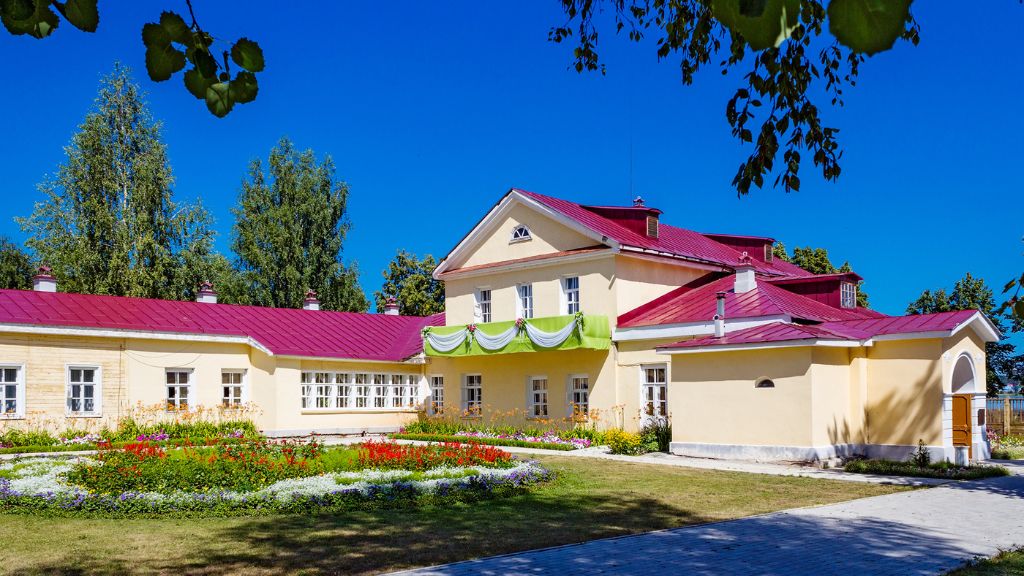
The house where Tchaikovsky was born in 1840. Now it is a memorial museum. Photo: Alx0yago, CC BY-SA 4.0, via Wikimedia Commons
Pyotr Tchaikovsky is considered the composer whose works are heard most often all over the planet, and this is largely the merit of the fundamental humanitarian education that he received. Pyotr’s mother, Alexandra, while still studying at the Patriotic Institute in St. Petersburg, became familiar with classical Russian and Western literature, and after her marriage she created an atmosphere in the house permeated with art and a high spirit of culture. Alexandra taught children perseverance, patience and diligence — without these qualities, Tchaikovsky would not have taken his place as a great composer.
Invalid slider ID or alias.
For five-year-old Petya a music teacher was invited; from the age of six the boy was fluent in German and French. From childhood, and particularly after moving to St. Petersburg, Tchaikovsky enthusiastically read the classics: Lord Byron, Walter Scott, Alexander Pushkin, Leo Tolstoy, Nikolai Gogol, William Thackeray, Charles Dickens and William Shakespeare. Art historian Ada Ainbinder in her article Great Britain in Tchaikovsky’s Life and Creative Work notes that he did not distinguish between the classics of English and Russian literature, and put them on the same level for himself. The main criteria for Tchaikovsky as a reader was the value of these writers in that they were “full of truth”.
- Tchaikovsky family in 1848 (far left — Pyotr Ilyich). Photo: See page for author, Public domain, via Wikimedia Commons
- Tchaikovsky in the uniform of a student of the Imperial School of Jurisprudence, 1859. Photo: AnonymousUnknown author, Public domain, via Wikimedia Commons
In the early 1850s, the Tchaikovskys moved to St. Petersburg, where Pyotr entered the Imperial School of Jurisprudence, attended performances at the Mariinsky Theater with his mother, and took music lessons from the German pianist Rudolf Kündinger. After studying, the young man began working in the Ministry of Justice, and since 1862 he became one of the first students of the St. Petersburg Conservatory, headed by Anton Rubinstein, composer and idol of Tchaikovsky.
Tchaikovsky’s first visit to London
In the summer of 1861, the 21-year-old Tchaikovsky made his first trip abroad — as a secretary and interpreter from the Ministry of Justice, he accompanied his father’s friend, engineer Vasily Pisarev. They visited Berlin, Hamburg, Brussels, Antwerp, Ostend, Paris and London, where they stayed for several days. It is worth noting here that Tchaikovsky first came to England at a very interesting time — it was the peak of the Victorian era, famous for its progress in technology and the popularization of art and culture. A striking symbol of the era was the Great Exhibition of 1851, organized by Prince Albert in the Crystal Palace, which was later rebuilt as a new and more spectacular building in southeast London, in Sydenham. After the walks, Tchaikovsky wrote to his father: “We settled in a rather modest hotel and spent whole days exploring the city. Just now I went to Westminster Abbey and Parliament. Yesterday and on the third day we were at the Crystal Palace the building is really magnificent, — but inside it is somehow too colorful. We were also in the Thames Tunnel, where I almost felt sick from stuffiness”.
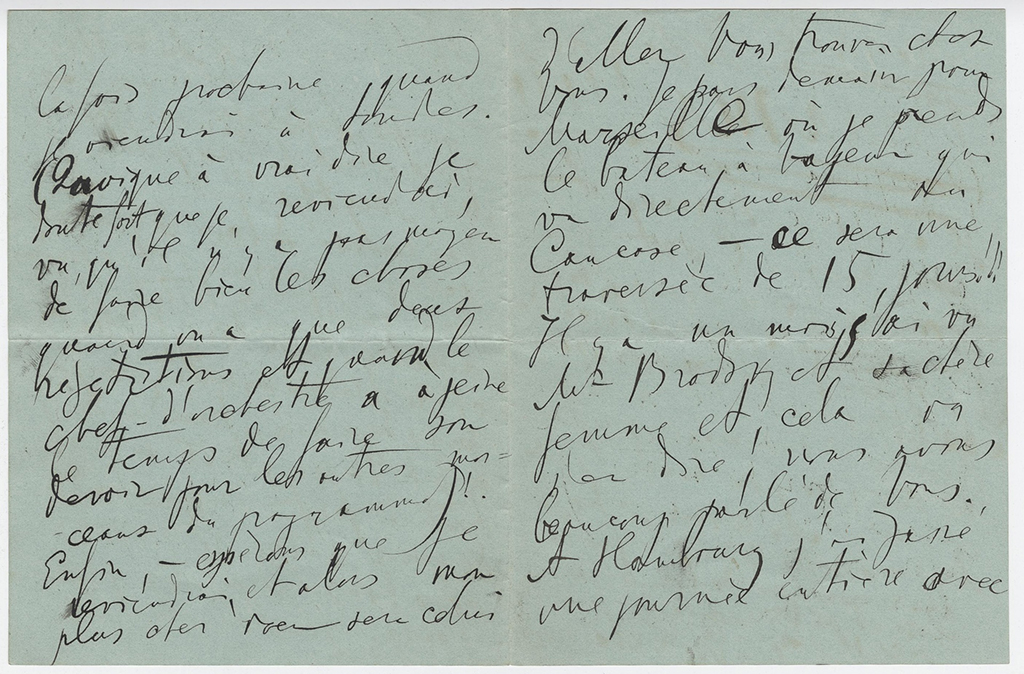
Fragment of the letter in French from Tchaikovsky to the English composer Ethel Smyth, one of the leaders of the suffragette movement. Photo: Hamilton: McMaster University. Archives and Research Collections. William Ready Division
The future composer noted that London was interesting, but made a gloomy impression on him, on the other hand, the local food, although simple, turned out to be to his taste. It should be mentioned that Tchaikovsky was an incredibly sensitive person — receptive to the beauty, aesthetics and details of the surrounding world, he reacted sharply, in his opinion, to any imperfection, including his own. His first visits to London were accompanied by rain, fog and other bad weather, which led the musician to discouragement and even despair, but this did not prevent Tchaikovsky from making a splash and brilliantly conducting the orchestra. Ada Ainbinder points out that during his collaboration with the British, already on the crest of fame, in 1887–1893, the composer exchanged letters with more than thirty addressees from England. Among them were the organizers of his concerts, admirers and collectors of autographs, and now many of these letters from Tchaikovsky himself are kept in the British archives.
Read more: Emmeline Pankhurst in St. Petersburg: the suffragette movement in Britain and Russia
Ups and downs on the road to glory
In 1866, Tchaikovsky accepted an invitation to teach at the established Moscow Conservatory and moved to Moscow, where, despite financial difficulties and constant disbelief in his own strength, he continued to work hard. As early as in 1870, Tchaikovsky’s passion for British classics bore its first fruits — at a concert of the Russian Musical Society, the composer presents the overture-fantasy Romeo and Juliet, based on Shakespeare’s tragedy of the same name. Fifteen years later, on the plot of Lord Byron’s poem, he will compose the famous Manfred Symphony. Meanwhile, the 70s test the musician for strength — in 1876 Tchaikovsky creates the legendary ballet Swan Lake and is preparing to complete the opera Eugene Onegin based on the novel in verse by Alexander Pushkin.
Read more: Modernist Legend Henry Moore and His Muse, Irina Radetzky
However, while working on the opera, Tchaikovsky became so accustomed to the heroes of the novel that he entered into a hasty marriage with Antonina Miliukova, a former student of the Moscow Conservatory, who was in love with him. After the marriage, Pyotr rejected the girl and fell into a deep crisis. This story, by the way, creates the basis for the biographical drama by Kirill Serebrennikov Tchaikovsky’s Wife, included in the main competition of the 75th Cannes Film Festival, which will be held from May 17 to 28.
- Tchaikovsky and his wife Antonina, 1877. Photo: Ivan Grigoryevich Dyagovchenko, Public domain, via Wikimedia Commons
- Tchaikovsky in his doctoral robe in Cambridge. Photo: Florence Henrietta Darwin (née Fisher, previously Maitland; 31 January 1864 – 5 March 1920), Public domain, via Wikimedia Commons
Tchaikovsky was helped by his friend and fairy godmother — the patroness of art and philanthropist Nadezhda von Meck, who supported the composer financially. An allowance of 6,000 rubles a year, allocated by the Baroness, allowed Tchaikovsky to leave his professorship at the conservatory and travel around Europe, especially Italy, which he passionately loved — and completely devote himself to creativity. It is interesting that Tchaikovsky and von Meck did not meet in person for a long time, but carried on a sincere correspondence for almost 14 years.
Read more: The legendary Russian children’s poet Korney Chukovsky in London
The Baroness sent the musician foreign books of British classics, since in the 80s Tchaikovsky seriously took up the study of English and dreamed of reading Dickens’ David Copperfield in the original. By the way, he studied English in an unusual way — he translated words through an English-French dictionary. In the 1980s, the composer acquired yet another patron, friend, and connoisseur of art — the poet and Grand Duke Konstantin Romanov, grandson of Nicholas I. Tchaikovsky also managed to gain trust and support of Emperor Alexander III, who contributed to the formation of Russian opera in Russia.
- Nadezhda von Meck. Photo: See page for author, Public domain, via Wikimedia Commons
- Tchaikovsky, Kharkov, 1893. Photo: Alfred Fedecki, Public domain, via Wikimedia Commons. Color: Klimbim
World fame and recognition in Britain
In March 1888, Tchaikovsky arrived in Britain as part of a large tour of Europe — already as an honored guest, famous composer and conductor. Tchaikovsky spends five days in London, where he stays at the luxurious Dieudonne Hotel on Ryder Street. It is not far from Piccadilly and just a couple of minutes’ walk from the concert hall St James’s Hall, where the musician was to conduct. Today, the hotel is gone, and the spectacular brick building is now owned by Christie’s auction house.
The concert was a resounding success: the audience was delighted, the newspapers praised the composer, and the organisers of the performance even increased the composer’s fee from £20 to £25. English art historian and biographer David Brown, in his book Tchaikovsky: The Man and His Music, tells how Tchaikovsky unexpectedly found himself more popular in Britain than in any other foreign country except the United States. Other experts also point out that Tchaikovsky was the first Russian composer to enter the minds of the general English public. His concert in London consolidated this success.
- Tchaikovsky, Hamburg, 1888. Photo: Atelier E. Bieber, Hamburg (probably by Leonard Berlin (1841-1931)), Public domain, via Wikimedia Commons. Color: Klimbim
- The grave of Tchaikovsky in the Alexander Nevsky Lavra in the Necropolis of the Masters of Art. Photo: A.I., CC BY-SA 3.0, via Wikimedia Commons
Read more: Felix Yusupov and Princess Irina of Russia: love, riches and emigration
A year later, in April 1889, Tchaikovsky again came to perform at St James’s Hall, together with the 20-year-old conservatory graduate Vasily Sapelnikov, Ukrainian pianist, who won the admiration of the public in Europe. London still burdens the composer with fogs, and only the last, fourth visit to Britain will improve the composer’s impressions. In 1893, the University of Cambridge celebrated the 50th anniversary of the founding of the Musical Society, and Tchaikovsky was invited to receive an honorary Doctor of Music degree (honoris causa). In May 1893, the composer visited the British capital, where he settled in his beloved Dieudonne and gave a concert at St James’s Hall. In letters to his brother Modest, Tchaikovsky wrote how this time London impressed him so that “his eyes run wide”, and complained that now he should come here in the summer and see luxurious carriages on walks in Hyde Park. A dinner at the Westminster Club in honor of Tchaikovsky and Camille Saint-Saens, another guest of honor and composer, completely captivated the musician with its organisation and chic.
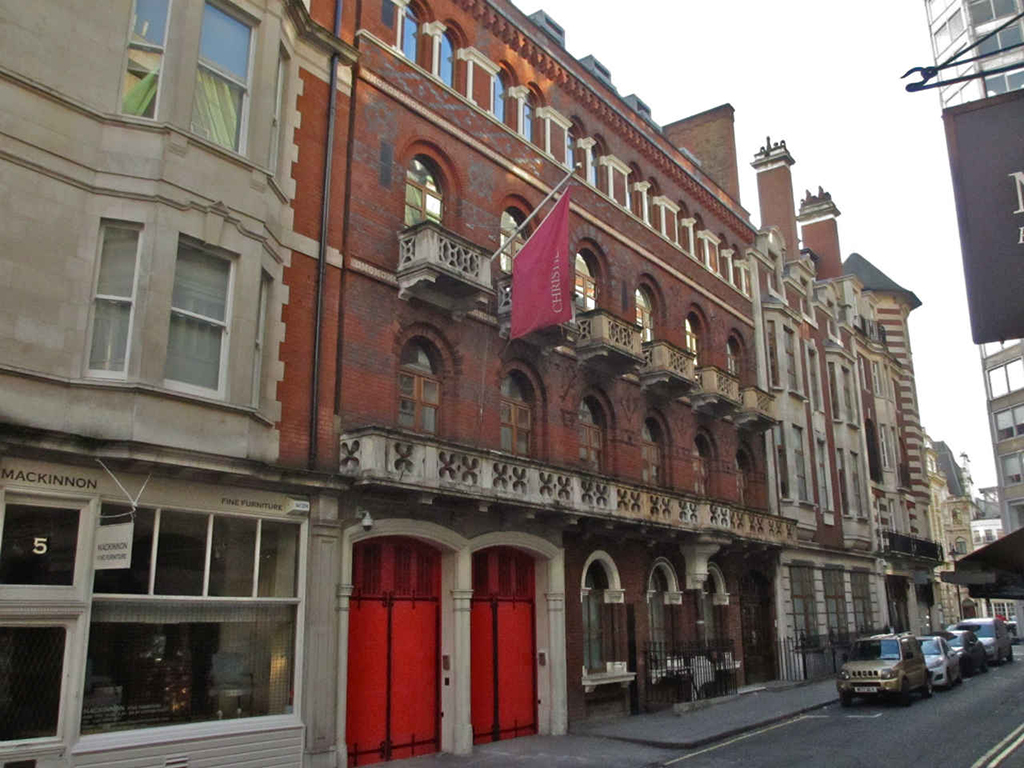
Hotel Dieudonne, now owned by Christie’s. Photo: Russian Culture in Landmarks
In Cambridge, Tchaikovsky stayed with a professor he knew and spoke of the city with admiration. The composer was greatly impressed by the University of Cambridge, which he compared to a medieval monastery, keeping the traditions of the past. The two-day doctoral award ceremony took place in mid-June 1893, after which the composer, who was pretty tired from a series of magnificent events, spent the fifth night in London and went to calmer Paris. This was Tchaikovsky’s last trip abroad: a couple of months later, on November 6, he died of cholera in St. Petersburg, which provoked a strong public reaction. The musician was buried in the Alexander Nevsky Lavra in the Necropolis of the Masters of Art, but the creative legacy of Tchaikovsky continues to live and flourish. We have already written about the most unusual productions of Swan Lake — directors and choreographers from different countries were so inspired by ballet that they created their own dizzying plots based on it. The magical music of Tchaikovsky is understandable to everyone, it touches the soul, and, therefore, will always be relevant.
Irina Latsio
Cover photo: Nikolai Kuznetsov, Portrait of Tchaikovsky, 1893 (fragment) / Nikolai Dmitriyevich Kuznetsov, Public domain, via Wikimedia Commons
Invalid slider ID or alias.
Read more:
How Diaghilev’s “Saisons Russes” influenced the European art world of the 20th century
SUBSCRIBE
Receive our digest once a week with quality Russian events and articles

